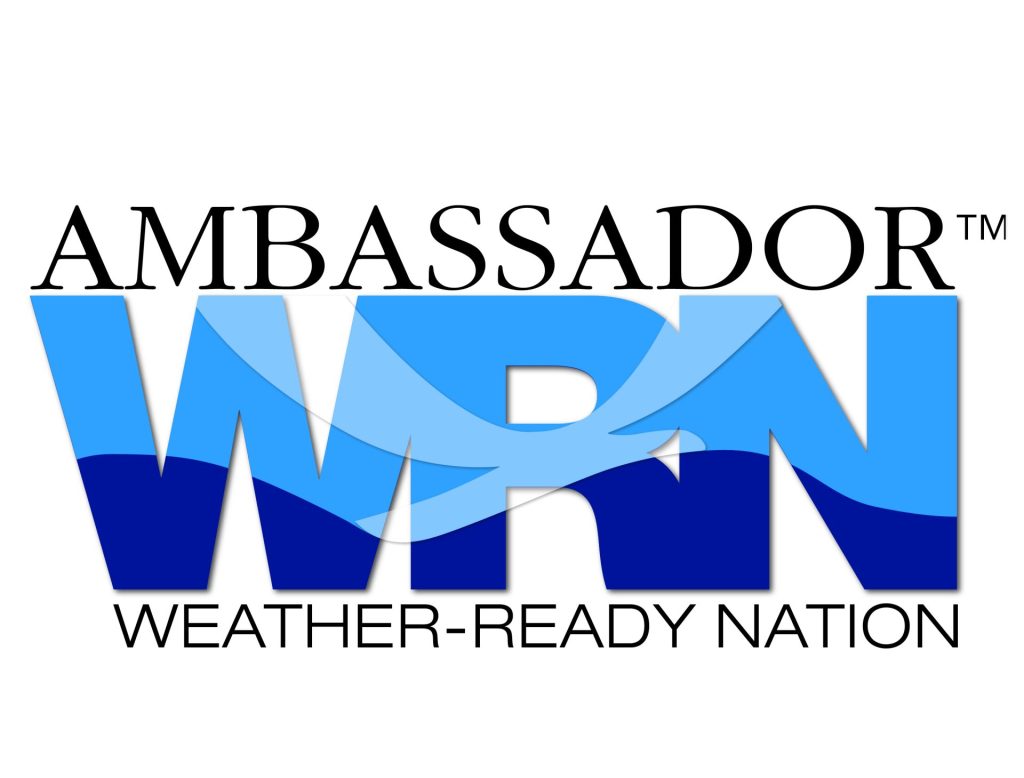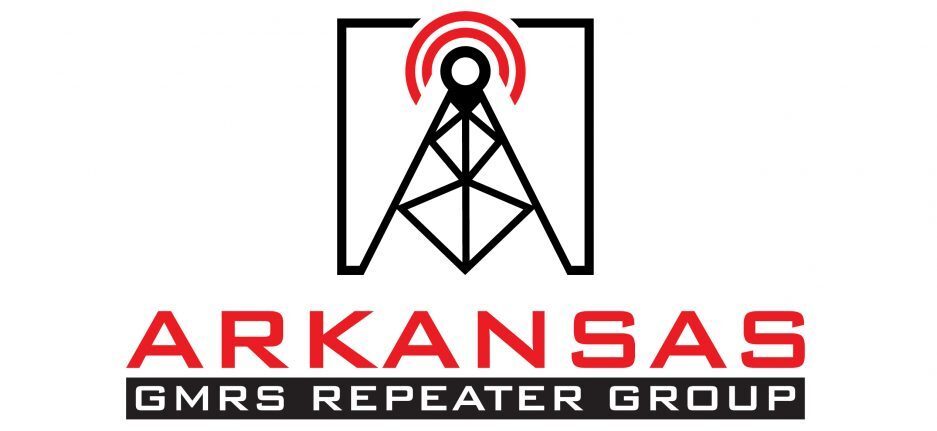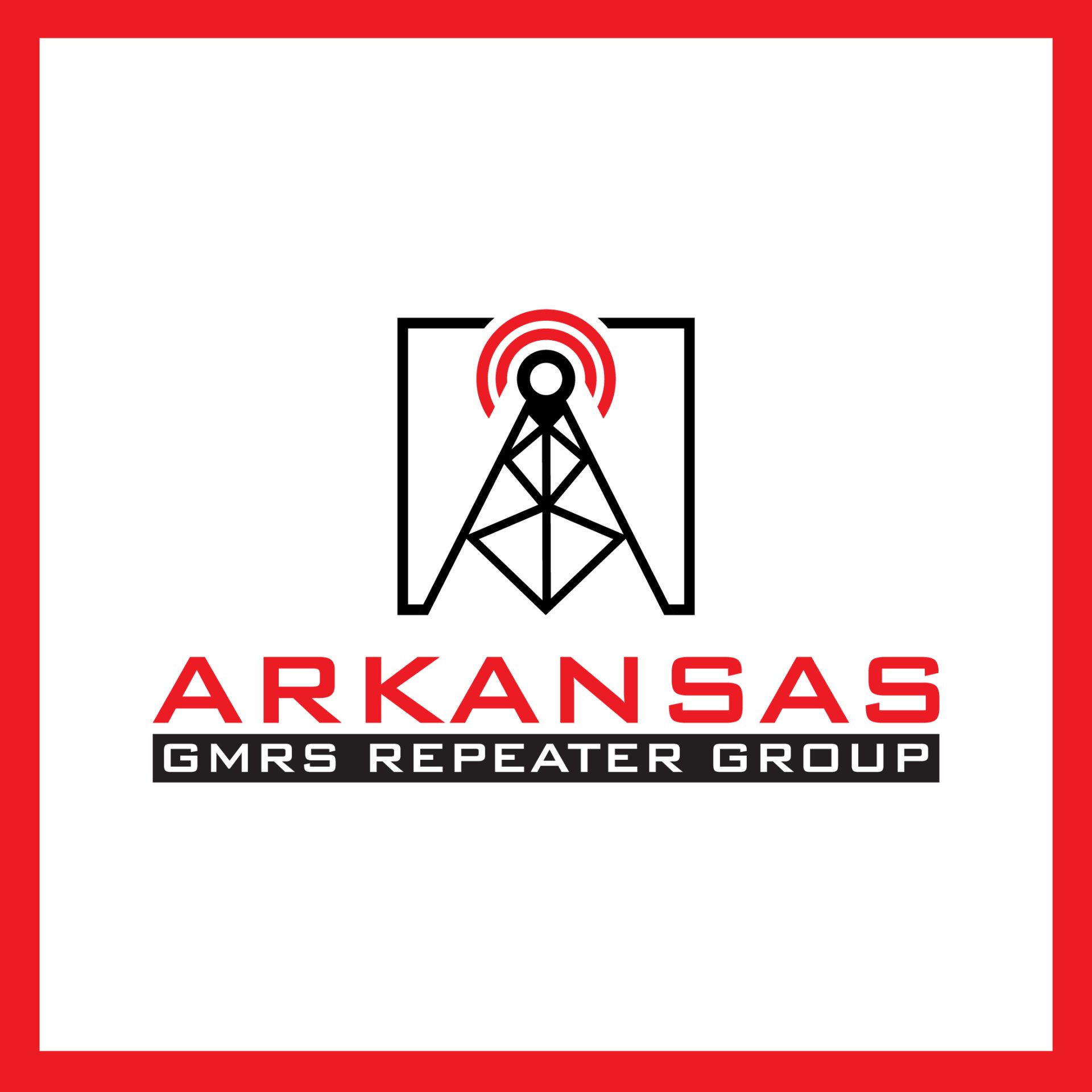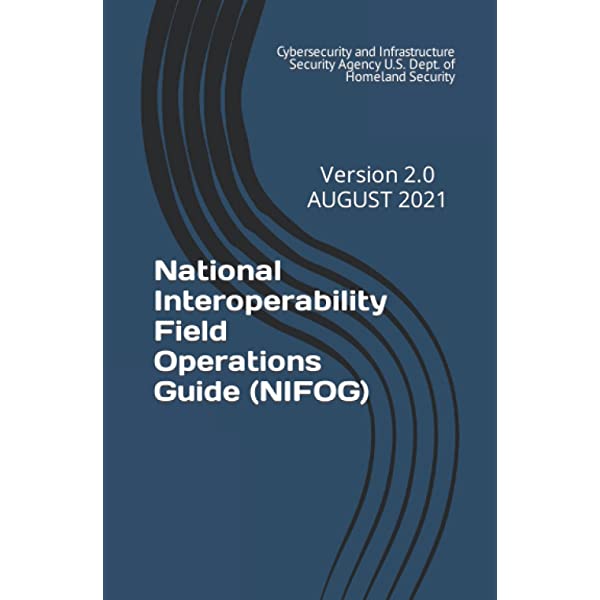Users and repeater owners of the Arkansas GMRS Repeater Group stand ready to assist their families, each other, as well as the State of Arkansas in times of incident or disaster. This page will have information as the program matures on what can be done to help each other or other Volunteer Organizations Active in Disaster (VOAD) such as Amateur Radio Groups (ARES/RACES) and so on. We are here for our members and families first and foremost.
AUXCOMM, or Auxiliary Communications, is a term coined by CISA (Cybersecurity & Infrastructure Security Agency) in 2009. GMRS and GMRS Repeaters are a valuable resource recognized and used in NIMS/ICS for incident planning and execution. We encourage agencies and local groups to include GMRS in their plans for situational awareness, reporting, and auxiliary traffic. In addition, we, as a Group, will strive to make sure we have as many resources available to our members and their families in times of emergency or disaster.
Many repeater owners have volunteered their systems to help in times of disaster or crisis, including backup communications (where available).
As with any emergency incident, we make no guarantees that repeater equipment is available to use. Incidents affecting an area could also affect GMRS repeater equipment, as well as any other public equipment.
Please be prepared.
Repeater Owner/Core Internal Actions
As per our user agreement, repeater owners and users of the Arkansas GMRS Repeater Group cooperative have agreed to assist each other with a user roster, repeater use sharing as well as technical advice and labor on a voluntary basis. As such, the Group finds it incumbent to provide the following to our owners in emergencies:
- Provide temporary GMRS Repeater setups in case incumbent system is damaged or off air.
- Provide ancillary equipment such as generators or solar power.
- Provide labor and transportation to stricken area.
The Arkansas GMRS Repeater Group could bring GMRS repeater equipment to any stricken area as needed, although we would prioritize our current repeater affiliates first. This need could be summoned by a current Group affiliate, public safety agency, or VOAD group. This would be on an as-available basis. Requests can be made to local repeater affiliates or repeater group members. An on-radio and off-radio communications list will be established.
Membership Actions
Arkansas GMRS Repeater Group users should prepare themselves and their families and friends with ancillary radio equipment such as their GMRS radios. GMRS radio equipment could/should include:
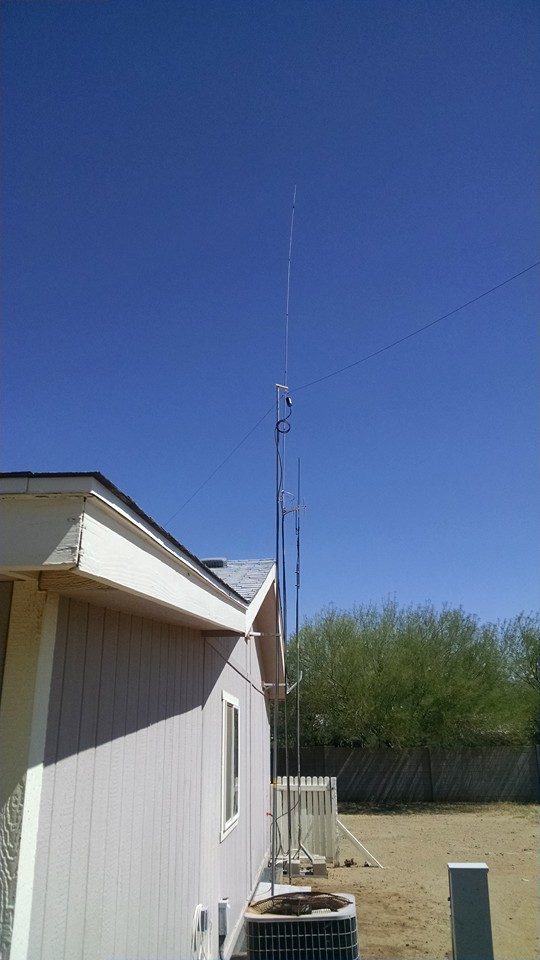
An equipped base station with mobile radios ran by external DC power supply. Antenna placed on mast outside.
- Portable UHF GMRS radios for each family member, including extra batteries.
- A mobile (vehicle mounted) radio for each vehicle, if possible.
- A base station radio that could be made from a mobile radio and power supply or 12V deep cycle battery. 50 watt transmitter output maximum, 25 watts at minimum.
- A vertical external antenna and coaxial cable- fiberglass, plastic or metal- that can be elevated off the ground;
- 10’ mast (at minimum). This could be a top chain link fence rail or commercial made mast.
- Ground mast mounting kit or way to affix the mast vertically. This could be attached to the side of a building or a specialty mounting kit.
- Emergency power such as a battery bank or portable generator.
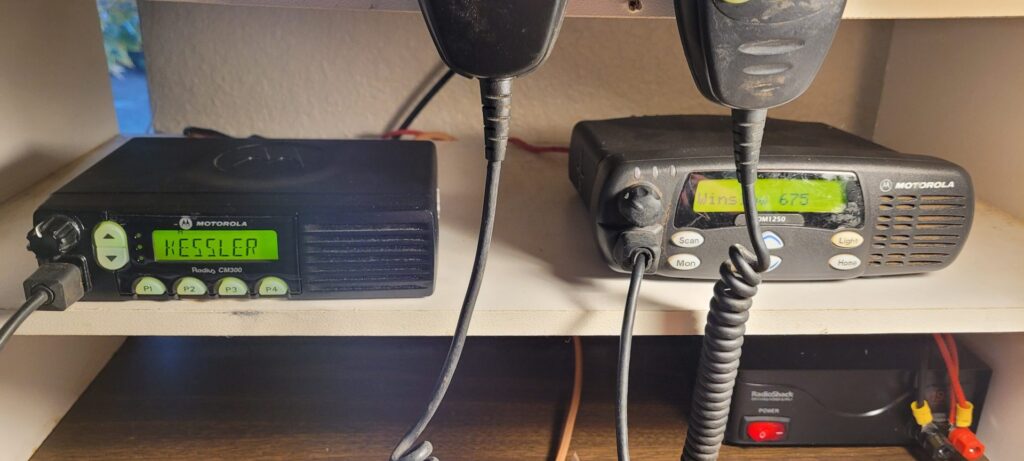
An external base station setup, antenna up about 15-20 feet may be a self-sufficient setup.
With this basic setup, you “should” be able to communicate with your family without repeaters for a couple of miles around the house or base station. If you can get the antenna higher, you will add some more distance. If enough in a town do this, there should be some decent communications capability around town between base stations. The linked repeaters will recognize, if an incident occurs, that radio traffic in an affected area will take priority. This may include holding traffic on other systems or un-linking non-critical repeaters from the system as needed.
Stand alone systems that are available can be used for local traffic. This may include bringing in additional repeater resources to an area.
External Actions
GMRS users can provide valuable information in an important situation, emergency or disaster. Sharing traffic reports helps other members avoid areas, as well as preparation for incoming weather. Situational awareness reports are paramount for many agencies forming ground-truth in needed areas. Information may include (not an all inclusive list):
- Blocked or impassable roadways due to collisions, flooding or debris.
- Storm conditions occurring
- Post storm damage assessments at the neighborhood level.
- Power outages
- Wild fire smoke reports
- Evacuation progress
- Local emergency information relay
Training Programs
Members and persons interested in Auxcomm can further their knowledge by completing training. This training helps Auxcomm participants understand policy and procedure in a disaster when communicating with each other and served agencies. As the Group becomes involved in a situation, it will be imperative that we understand and communicate like the others we will be working with. Typically, there are four, free online classes that communicators can take at their own pace. Once completed, you will receive a certificate for safe keeping.
Before you start! Register at Emergency Management Institute and get a free Student ID:
Student ID
Complete the following classes at your own pace:
Local Resource Links For Emergencies
